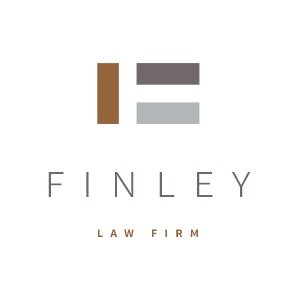Best Insurance Fraud Lawyers in Des Moines
Share your needs with us, get contacted by law firms.
Free. Takes 2 min.
List of the best lawyers in Des Moines, United States
About Insurance Fraud Law in Des Moines, United States
Insurance fraud law in Des Moines, Iowa, United States, encompasses a broad range of illegal activities, all of which involve dishonesty and deception in the context of insurance transactions. These offenses can be committed both by individuals attempting to receive illicit benefits and by insurance providers or agents trying to wrongfully profit. Some common instances include overstating damages, falsifying losses, or intentionally causing accidents. Insurance fraud is seen as a serious offense in Des Moines and can lead to hefty fines and incarceration if convicted.
Why You May Need a Lawyer
If you're being investigated or have been charged with insurance fraud, it's essential to hire an insurance fraud defense attorney. Professionals in this field have profound knowledge and understanding of insurance law and criminal defense. Furthermore, even if you're not currently facing charges, but need to file a claim or suspect a fraud, having a lawyer with you can safeguard your interests, provide important advice, and guide you through any complications that may arise.
Local Laws Overview
In Des Moines, Insurance Fraud falls under Iowa Code sections 507E.3 and 507E.5. It can be classified as either a felony or misdemeanor, depending on the value of the fraud committed. For amounts exceeding $10,000, the crime is considered a Class D Felony, punishable by up to 5 years imprisonment and a fine of $750 to $7,500. For lesser values, it's considered a serious misdemeanor, potentially leading to a year in jail and a $315 to $1,875 fine.
Frequently Asked Questions
What types of insurance fraud are common in Des Moines?
Common types of insurance fraud include auto insurance fraud, health insurance fraud, life insurance fraud, and property insurance fraud.
Is it considered insurance fraud if I unintentionally give incorrect information?
The intent is a key component of insurance fraud. However, consistently providing incorrect information, even unintentionally, can lead to investigations and potential charges. It's always best to provide accurate and complete information when dealing with insurance.
What should I do if I suspect insurance fraud?
If you suspect insurance fraud, you should report it to the insurance company and the Iowa Insurance Division. Hiring a lawyer can help ensure you're taking the correct steps.
What are the potential consequences of insurance fraud?
Penalties for insurance fraud can range from fines, probation, restitution to the victims, and imprisonment.
Can a lawyer defend me if I’m accused of insurance fraud?
Yes, a skilled defense attorney can devise strategies to protect your rights, challenge the prosecution's evidence, or negotiate for reduced charges or penalties.
Additional Resources
For further information and assistance, consider contacting the Iowa Insurance Division, the National Insurance Crime Bureau, and the Coalition Against Insurance Fraud. These excellent resources provide a wealth of information about insurance fraud, prevention, and enforcement.
Next Steps
If you need legal assistance in dealing with insurance fraud, we recommend consulting an experienced insurance fraud defense attorney as your first step. Furthermore, if you suspect fraud, report it promptly to the relevant authorities. Always remember to provide accurate information when dealing with your insurance coverages to avoid unintentional fraud.
Lawzana helps you find the best lawyers and law firms in Des Moines through a curated and pre-screened list of qualified legal professionals. Our platform offers rankings and detailed profiles of attorneys and law firms, allowing you to compare based on practice areas, including Insurance Fraud, experience, and client feedback.
Each profile includes a description of the firm's areas of practice, client reviews, team members and partners, year of establishment, spoken languages, office locations, contact information, social media presence, and any published articles or resources. Most firms on our platform speak English and are experienced in both local and international legal matters.
Get a quote from top-rated law firms in Des Moines, United States — quickly, securely, and without unnecessary hassle.
Disclaimer:
The information provided on this page is for general informational purposes only and does not constitute legal advice. While we strive to ensure the accuracy and relevance of the content, legal information may change over time, and interpretations of the law can vary. You should always consult with a qualified legal professional for advice specific to your situation.
We disclaim all liability for actions taken or not taken based on the content of this page. If you believe any information is incorrect or outdated, please contact us, and we will review and update it where appropriate.








